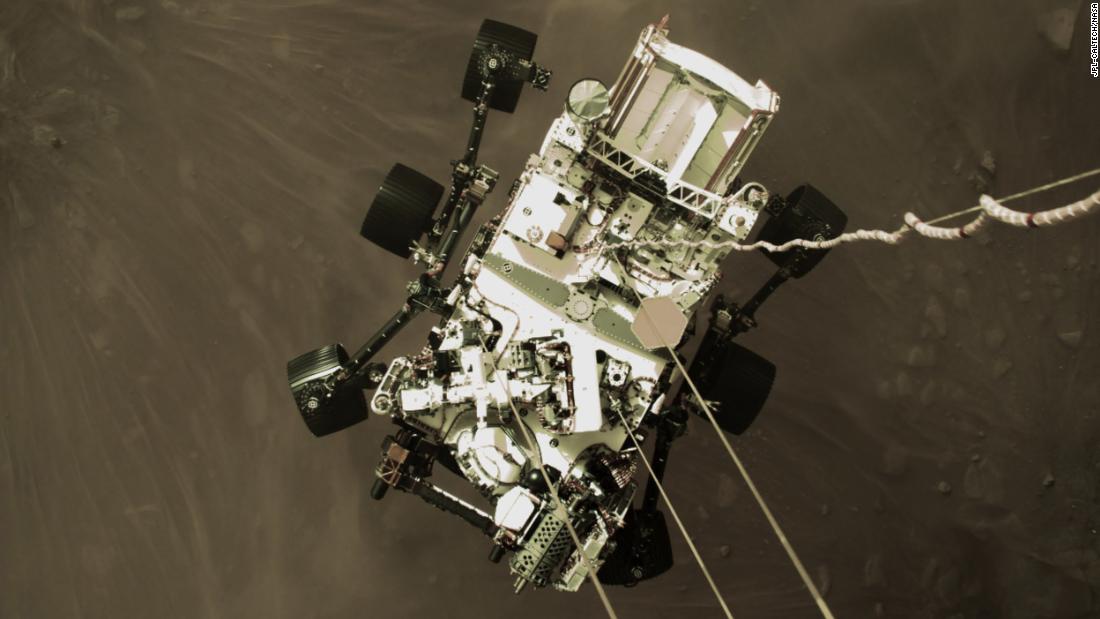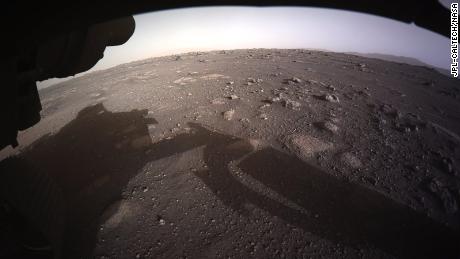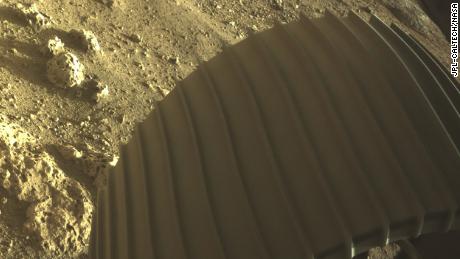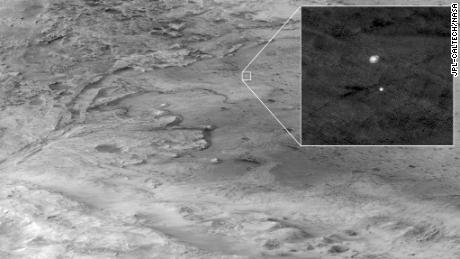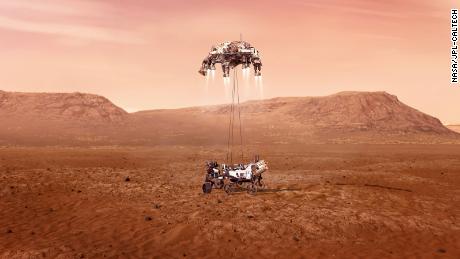NASA’s Perseverance rover has sent back new color images and a never-before-seen view of what it looks like to land on the red planet
The rover also returned some beautiful postcards of its landing site.
The first image shared during a NASA press conference Friday was “exhilarating” for the team when they received it. It shows the rover nearing the Martian surface during entry, descent and landing. A camera on the descent stage of the spacecraft captured the perspective, something that wasn’t possible on previous missions.
Little dust plumes can be seen kicking up from the Martian surface, stirred by the engines landing the rover when it was just 6.5 feet above the surface.
“The team is overwhelmed with excitement and joy to have successfully landed another rover on the surface of Mars,” said Adam Steltzner, the rover’s chief engineer. “When we do such investments, we do them for humanity, and we do them as a gesture of our humanity.”
Steltzner cited iconic space images from the Apollo mission, like Buzz Aldrin on the surface of the moon, Voyager’s first image of Saturn and the Hubble Space Telescope’s awe-inspiring “Pillars of Creation” photo.
“We can only hope, in our efforts to engineer spacecraft and explore our solar system, that we might be able contribute yet another iconic image to this collection, and I’m happy to say that I’m hopeful that today we can with this.”
While the first images returned by the rover Thursday evening were black and white glimpses showing it safely landed on Mars, color images made available Friday show the characteristic red color of the Martian surface.
“An open horizon, with so much to explore. Can’t wait to get going,” the Perseverance account tweeted.
Rocks are also seen scattered across the flat surface of the landing site in Jezero Crater, but they’re small when compared to the large rover wheels.
Another tweet with the image read, “I love rocks. Look at these right next to my wheel. Are they volcanic or sedimentary? What story do they tell? Can’t wait to find out.”
The Mars Reconnaissance Orbiter’s HiRISE camera, which flew over the landing site as Perseverance was coming in for a landing, captured an incredible view as the spacecraft’s parachutes opened.
“If you look below to the little circle, this was our eventual touchdown point,” said Aaron Stehura, deputy phase lead for entry, descent and landing. “You can see it’s near the river delta that we’ve talked about.”
Perseverance landed about 1.2 miles away from the river delta feature within Jezero Crater, which hosted a lake 3.9 billion years ago. The rover will spend the next two years investigating the crater and delta in the search for evidence of ancient life that may have existed when Mars was a more habitable place.
![]()


